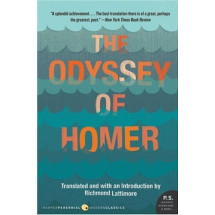This collection of essays serves both as an introduction to Ruth Millikan's much-discussed volume Language, Thought, and Other Biological Categories and as an extension and application of Millikan's central themes, especially in the philosophy of psychology. The title essay discusses meaning rationalism and argues that rationality is not in the head, indeed, that there is no legitimate interpretation under which logical possibility and necessity are known a priori. In other essays, Millikan clarifies her views on the nature of mental representation, explores whether human thought is a product of natural selection, examines the nature of behavior as studied by the behavioral sciences, and discusses the issues of individualism in psychology, psychological explanation, indexicality in thought, what knowledge is, and the realism/antirealism debate.
Introduction
1 Picture Theories
2 Causal/Informational Theories
3 PMese Theories
4 Solving the Normativity Problem
In Defense of Proper Functions
Propensities, Exaptations, and the Brain
1 Introduction
2 The Rationale for the Definition of "Proper Function"
3 The Importance of Selection
4 Why Not Propensities?
5 The Attack on Adaptationism
6 Exaptations
7 Proper Functions and Brains
Thoughts without Laws
1 Biological Categories, Proper Functions, and Normal Conditions
2 Psychology as a Branch of Biology
3 Proper Functions versus Laws
4 Motions, Behaviors, and Actions
5 What Knowing about a Proper Function Does Not Tell Us
6 Desires
7 Beliefs
8 Independence of Beliefs and Desires: Rational Animals
9 Inner Maps
10 Some Implications
Biosemantics
On Mentalese Orthography, Part 1
1 Tacit Suppositions
2 "Content-Ladenness": Intentional Icons
3 "Processes of Information-Transformation": "Representations"
4 "Sentences... in a Language of Thought"
5 Inner Representations and Ascriptions of Belief
Compare and Contrast Dretske, Fodor, and Millikan on Teleosemantics
What Is Behavior? A Philosophical Essay on Ethology and Individualism in Psychology, Part 1
The Green Grass Growing All Around: A Philosophical Essay on Ethology and Individualism in Psychol...
1 Explaining the Functional Form of the Output
2 Why Computers Do Not Exhibit Behaviors
3 The Environment as an Ingredient in Behavior
4 The Inadequacy of the Organism/Environment Distinction
5 The Study of Behavior as a Study of the Organism-Environment System
6 Inner Mechanisms of Behavior: Desires and Beliefs
7 Intentional Psychology as an Ecological Science
Explanation in Biopsychology
1 Teleofunctions
2 Psychological Classification as Functional Classification: Categorial versus Relational Functions ...
3 Biopsychology as a Study of Norms: The Ubiquity of Cognitive Failure
4 The Subject Matter of Biopsychology Is a Process
5 The Organismic System Penetrates into the Environment
6 Biopsychology Is a Predictive Science, If at All, Then Only Accidentally
7 Reasons and Causes
8 Normalizing Explanations
9 The Normal Roles of Beliefs and Desires
10 How Normalizing Explanations Circumscribe Causes
Metaphysical Antirealism?
Truth Rules, Hoverflies, and the Kripke-Wittgenstein Paradox
1 The Kripke-Wittgenstein Paradox
2 General Form of the Solution
3 Purposive Rule Following, Competence to Follow a Rule
4 Proximal versus Distal Rules
5 Learned or Derived Rules and Competences
6 Human Rule Following
7 Truth Rules: Verificationist or Correspondence?
8 Causes of Verificationist Myopia
Naturalist Reflections on Knowledge
1 Proper Functions and Normal Explanations
2 Normally Acquired True Belief
3 Degrees of Strength in Dispositional Belief
4 Occurrent Knowledge
5 Dispositional Knowledge
6 Skepticism
7 Knowledge That Is Later Defeated
Appendix
The Myth of the Essential Indexical
White Queen Psychology; or, The Last Myth of the Given
1 Introduction
2 Meaning Rationalism Defined
1. The epistemic givenness of meaning identity and difference
2. The epistemic givenness of univocity
3. The epistemic givenness of meaningfulness
3 Meaning Rationalism and Rational Psychology
Psychological law of identity
Psychological law of noncontradiction
Psychological laws of simplest logic
Psychological laws of rational motivation
Psychological law of univocity
Psychological law of meaningfulness
4 What Is a "Rational Person"?
5 Inverted Meaning Rationalism
6 Varieties of Propositions and of Meaning Rationalism
7 "Kontent" and "Karacter"
8 Fregean Senses and Definite Descriptions, Fregean Senses and Millian Terms
9 The Transition from Language to Thought
10 Kontent-Rationalist Prohibitions against "Dthats," Indexicals, and Fregean Descriptions
11 Trades among Indexicals, Presemantics, and Analysis
12 The White Queen's Strategy for Capturing Millian Thoughts
13 How to Be a Kontent Rationalist: Separately Determined Kontents
14 How to Be a Kontent Rationalist: Holistically Determined Kontents
15 Logical Possibilities Cannot Be Kontent Possibilities
16 Logical Possibilities Cannot Be Kontents under Modes
17 The Two Faces of Modes of Presentation
18 Mode Rationalism Defined
19 Dependent Semantic Modes
20 Modes of Presentation for Millian Thoughts
21 Modes of Presentation for Indexicals and Variable Names
22 What Narrow Contents Cannot Be
23 Psychological Roles as Narrow Semantic Modes
24 Modes of Presentation of What?
25 Semanticity Is Not in the Head
26 Contrast with Stich
27 The White Queen's Results: The Centrality of Kontent Identification
28 Implications for Intentional Psychology
Ruth Garrett Millikan is Distinguished Professor of Philosophy at the University of Connecticut. She is the author of Language, Thought, and Other Biological Categories (MIT Press, 1984) and White Queen Psychology and Other Essays for Alice (MIT Press, 1995) and On Clear and Confused Ideas.














